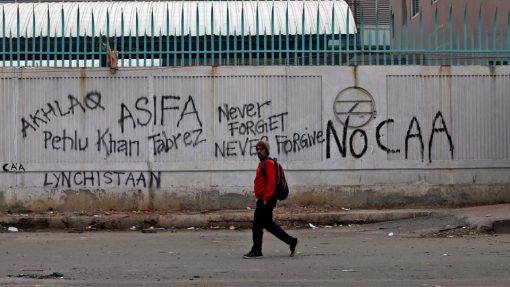
New Delhi: Contrary to popular perception that Muslims vote en bloc and will also do so in these Delhi elections in favour of a political party to defeat the Bharatiya Janata Party (BJP), the reality on ground is different this time round.
In the wake of the ongoing protests against the controversial Citizenship Amendment Act (CAA), the National Population Register and the proposed National Register of Indian Citizens (NRC), neither the Congress nor the Aam Admi Party (AAP) can take Muslim votes for granted.
Muslims constitute around 13% of Delhi’s population. They are estimated to be over 40% in five of the 70 Assembly constituencies — Okhla, Seelampur, Mustafabad, Matia Mahal and Ballimaran.
In the national capital, Muslims have traditionally voted for the Congress. However, the trend changed in 2013 when a majority of them favoured the Aam Aadmi Party (AAP). In 2015, the community voted en bloc for AAP and the Congress failed to win even a single seat.
Let’s go to seat by seat to understand the mood among Muslim voters in these constituencies.
Matia Mahal (Old Delhi) — In one of the largest constituencies in the city with high concentration of Muslim electors, there seems to be a direct fight between AAP’s Shoaib Iqbal and Mirza Javed Ali of Congress. Iqbal, who had held the seat between 1993 till 2015, appears to have an upper hand so far. Then a Congress candidate, he was defeated in 2015 election by AAP’s Asim Ahmed Khan by over 26,000 votes.
Iqbal enjoys wide support in Matia Mahal, where Muslims constitute around 40% of the electorate and play a decisive role in determining the result. He has a clear stand on the controversial citizenship law and the ongoing protests against it, and was active in ensuring that those who were detained and arrested in the violence that erupted near Delhi Gate, get released.
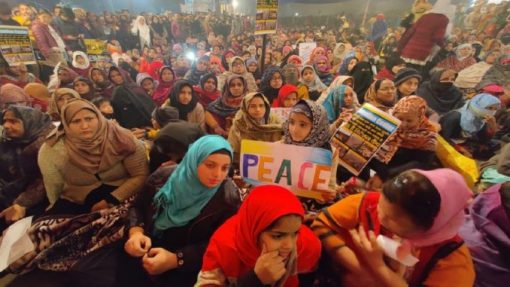
“Indian democracy cannot afford to ignore us. We are citizens. If political parties do not consider us as such, the Indian polity will face serious consequences,” said some residents of the area, openly voicing their support for the AAP nominee, adding that their “existence and identity are in question” and a leader who stands by them in this “crucial time” will get their support.
Iqbal, said some others, has always stood by them. “He is a people’s leader. He is accessible, has always been in his constituency, and has always helped us. During the anti-CAA protests, when people were being harassed and picked up by the police, he ensured that no harm is done and law take its course,” they added.
Development works, especially concerning the quality and congestion of roads, water supply and sewer connections, are among other issues here. Even after over seven decades of Independence, the Assembly segments under Delhi’s Chandni Chowk parliamentary constituency — known as Asia’s biggest hub for tools and machinery parts — still suffers due to absence of civic amenities and lack of attention from the administration.
“Kejriwal is mudde par khul kar saamne nahin aaya…yeh uski chunawi majboori hai…lekin usne jo kaam kiya hai use kaise bhulaya ja sakta hai [(Chief Minister Arvind) Kejriwal did not openly support us on CAA…it might be his electoral compulsion…but the work he has done cannot be ignored],” said some community members, hinting that they might vote for the ruling party in Delhi.
Meanwhile, the Congress hopes that its anti-CAA-NPR-NRC stand would help it build on the support it got in the 2019 general elections, when the party came second in five of the Delhi’s seven Lok Sabha constituencies.
The BJP — which has fielded Ravinder Gupta — is expecting a split in Muslim votes go in its favour. But the ground reality so far does not suggest so.
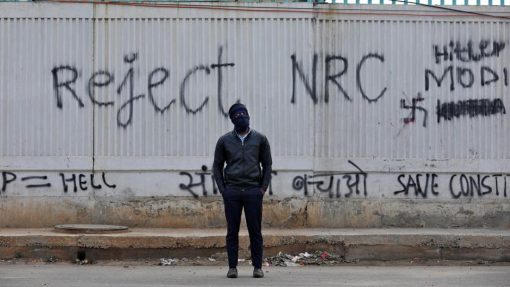
Ballimaran — In this Congress bastion in Central Delhi, the main contest is apparently between Imran Hussain of AAP and Haroon Yusuf of the Congress.
The Food and Supplies Minister in the Delhi government, Hussain seems to be ahead so far because Yusuf seems to have lost ground because of his alleged inaction. Though both leaders were not at the forefront of the anti-CAA protest, people seem happy with the AAP nominee because of his party’s performance in key fields, such as education, health and electricity.
“The constituency is facing a range of issues, such as clean and regular water supply, hanging electric wire and health facilities. The AAP has tried to address these problems to an extent. Majority of sewage lines have been worked upon. Leaking water pipelines have been changed. Construction of roads are also in progress. It won’t be a good gesture on our part if we do not give another chance to a party that has tried its best to address the core issues people face,” said some people.
They said they trusted Yusuf and elected him from 1993 till 2014, but he never cared to address the basic issues of his constituency. He secured third position in the 2015 election. AAP registered a victory margin of over 41,000 votes against BJP’s Shyam Lal Morwal.
Ballimaran has a seizable dalit population. A new combination of dalit-Muslim voters (nearly 3/5th of the total electorate in the constituency) is emerging, which is against the Congress and BJP, given the polarisation against the saffron party in both the communities because of the CAA, NPR, NRC and other excesses against them in the past six years.
While the BJP has fielded Lata Sodhi as its candidate, Deep Chand from the Bahujan Samaj Party is also in the fray here.
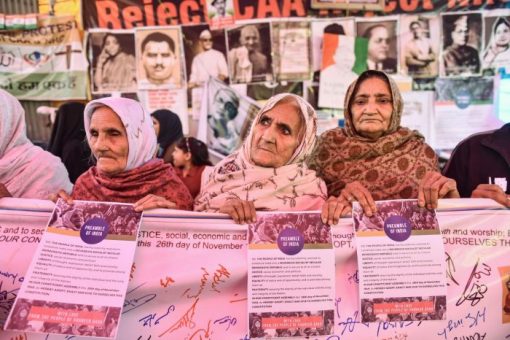
Chandni Chowk — In one of the smallest constituencies in terms of number of voters, Chandni Chowk holds importance because of being a business hub: Former AAP leader and MLA Alka Lamba, who is now contesting on a Congress ticket, is giving a tough fight to BJP’s Suman Kumar Gupta and ex-Congress leader Parlad Singh Sawhney, who is contesting on an AAP ticket.
Once a Congress stronghold, with over 40% Muslim population, Sawhney represented this constituency between 1998 and 2015 in the Delhi Assembly. He lost to then AAP nominee Alka Lamba, who is now back with the Congress.
An active leader, who is quite vocal on different issues, Lamba has openly supported the anti-CAA protests across the country. She is among the leaders who came to Jamia Millia Islamia to express solidarity with students who were brutally attacked by the Delhi Police on December 15, 2019.
The BJP would be hoping to take the lead in the constituency banking on a potential split in Muslim votes between the AAP and Congress, but some voters here said they don’t have any confusion. “We are not at all confused. Yes, we acknowledge the work done by AAP but the election this year is different. We cannot ignore those who stood by us in times of need,” said many voters Newsclick spoke to.
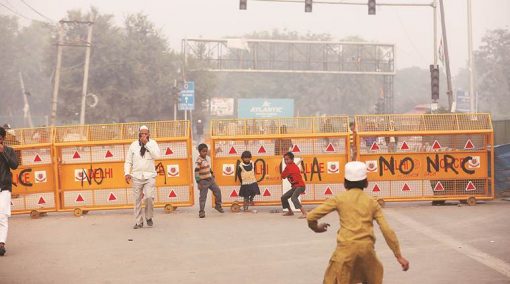
A section of voters, however, gave a list of reasons why they would vote for AAP, citing work done in the fields of education, health and electricity. “The area needs a major sanitisation plan and a cleaning up of the Yamuna. The issues have found a mention in AAP’s manifesto. Therefore, we feel that the party with a proven record should be given a chance,” they added.
The trader community, traditionally considered a backbone of BJP, is also a key electoral factor in this constituency. They seem to be split between the Congress and BJP because of the latter’s faulty business policies, no relief in the Union Budget and widespread sealing.
Seelampur — In this Muslim majority seat in the North-East Delhi, Chaudhary Mateen Ahmad of Congress appears to be going strong because of his popularity and active support to the anti-CAA protest.
“He has a charismatic leadership,” said a few residents who claimed to have no political affiliations. “The AAP candidate — Abdul Rehman — is weak and has no leadership quality. At a time when there is an anger among Muslims against BJP and people were on the streets opposing the new citizenship law, he was seen nowhere. Like his party chief, he also chose to keep mum. Had the AAP fielded sitting MLA Mohammad Ishraque again, the situation would have been different,” they added.
Seelampur had witnessed a violent protest against CAA. AAP MLA Ishraq Khan had accused Mateen Ahmed of instigating the protestors. The AAP has generally maintained silence on CAA, and had appealed for peace following violence and police action, while the Congress has clearly opposed the legislation.
Some voters said Mateen Ahmed enjoyed support across communities. Hindus can be seen in large numbers in his election campaign. The voters here see a direct fight between Congress and BJP, and say that AAP is nowhere in the picture.
Congress has won this constituency three times in the previous Delhi elections. AAP has won the seat only once, while BJP has never won here.
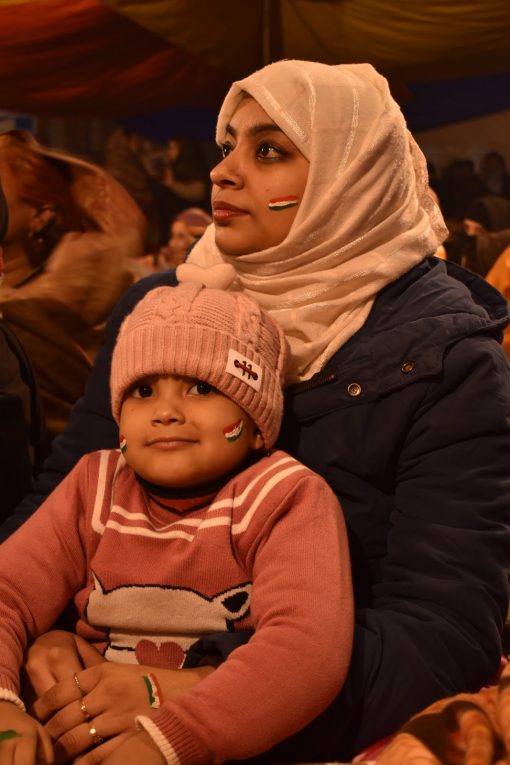
Mustafabad — Another Muslim-dominated constituency, here the fight here seems to be between AAP and BJP. Congress has given ticket to its veteran Hasan Ahmad’s son, Ali Mehdi, but he does not appear to be in the race.
Both Haji Yunus of AAP and Ali kept themselves distanced from the anti-CAA protests here, which also turned violent. The voters seem to be in favour of AAP because of the “development work” done by the Arvind Kejriwal government.
Notably, money has always played a deciding factor in this constituency, but voters say this election is “different”. “The line is very clear this election. We have to defeat the BJP. Only AAP seems to be capable of doing so and therefore, we will go for the party. Additionally, Kejriwal government’s work will also play an important role. The AAP appeals to ordinary people, those whose religion is hunger. We cannot be swayed by speeches loaded with communal slogans. What matters to us is that they are getting free power and water, free health care and good government schools in their vicinity,” they added.
When asked about AAP’s silence on CAA, they said it was due to “political compulsions”, which is “understandable”.
“It’s a good strategy. The AAP has opposed the Bill in Parliament. If Kejriwal visits any Muslim constituency and issues statement in support of the protest, he has a risk of losing out the Hindu vote. You can’t win elections by getting Muslim votes only,” they said, adding that the Muslim community “understands this, and which is why, we are not perturbed by his silence”.
Thia sentiment was echoed by others too. “Voters in Delhi understand the value of their votes and they will not waste it. The Hindu-Muslim rhetoric won’t work. As far as Muslim voters are concerned, we are clear about AAP and its governance plank,” they added.
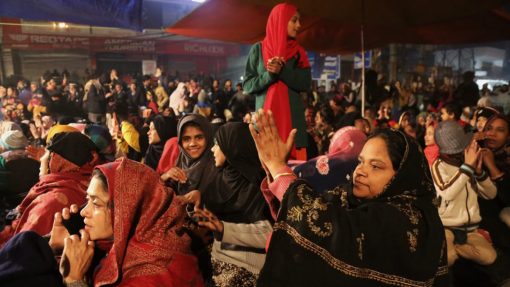
Okhla — In this predominantly Muslim constituency in South East Delhi district lies Shaheen Bagh, a symbol of the nationwide protest against the CAA.
AAP’s Amanatullah Khan is giving a tough fight to Congress’ Parvez Hashmi and BJP’s Brahma Singh. “The development work done by AAP is not based on Hindus and Muslims. It is for every citizen of the city. They have given us free electricity, water and our women can travel safely in public transport. This is important,” said a woman at the protest site at Sarita Vihar-Kalindi Kunj-Noida stretch, which has been blocked for the past 53 days because of the indefinite sit-in being staged by women.
“This is the darkest time in the history of the country’s Muslims. But we are also resilient against a discriminatory law. The BJP continues to polarise voters but people of Delhi have seen understood the BJP’s game plan,” she said.
A resident of Sarita Vihar, though said she was against the blockade of the main road. “We understand that the proposed NRC will not only impact Muslims, it will affect us as well. If they can implement it in Assam, they can do the same anywhere. They are leaving no stone unturned to divide the population on religious lines, but they do not realise the danger looming large. Talk about development work. Why do you always talk about Hindu-Muslim. Youth are losing jobs, there is no employment, economy is crumbling, but the government seems to be least bothered,” she said.
Others in Jasola said they had voted for BJP in the Lok Sabha elections trusting Prime Minister Narendra Modi, but said he had betrayed the faith.
“We will go for AAP irrespective of its candidate. We don’t want divisive politics. Talk about issues. If you have Modi, then why are you so desperate to pour in all your chief ministers for campaigning. We want peace, not conflict,” said a woman banker.
"It's not about AAP or Congress. We don't expect anything from these parties. With the advent of Modi, they primarily toe a majoritarian line in their political discourse. Neither Congress nor AAP leaders came here, the ghost of polarisation has continued to haunt them. But we don’t have any other option but to go for AAP as the Congress has no base left in this constituency,” said an elderly man in Jauhri Form at Jamia Nagar in Okhla.




